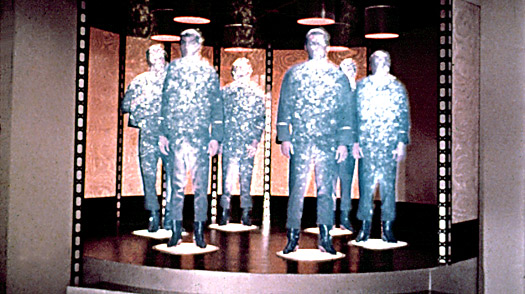Researcher Reflects on Political Communication and Why Frames Are More Powerful Than Facts

This morning I posted on a fascinating forthcoming study that concludes that generalized messages about science are more impactful on audiences than similarly framed messages that include details on scientific findings.
As a follow-up, below I have posted an interview I did with the lead author James Druckman on the significance of the study and on the field of political communication generally. Druckman is the Payson S. Wild Professor of Political Science and Faculty Fellow at the Institute for Policy Research at Northwestern University. He also serves as editor of Public Opinion Quarterly, the top outlet in the social sciences for public opinion research. Druckman is one of several researchers in the field of political communication who have in recent years turned to examining science-related controversies and debates.
How do you define the field of political communication? What do researchers in political communication study?
That’s an interesting question as I’m not sure there is an agreed upon definition. I would say the field of political communication involves the study of how actors choose verbal and non-verbal behaviors and how those behaviors affect other people in POLITICAL contexts. Of course the defining element is “political” contexts… To me, that means environments where behaviors are of relevance to governing officials. I mean this in the broadest of ways; for example, decisions about whether to buy a hybrid car, while private in some respects, still influence the collectivity insofar as it could impact energy policy decisions.
What questions and areas of research do you examine?
I focus on both sides of the communication process: how political elites, particular politicians, choose their messages and then how these messages affect others (mostly ordinary citizens). In terms of elites, I study the strategic use of polls and congressional campaign strategy. In terms of citizens, I’m interested in how citizens process messages in environments that characterize most political contexts. This means there is competition and there are over-time processes (e.g., campaigns).
What are the hot topics and trends in political communication research today?
I think there is certainly a lot of discussion on how new technologies have changed the face of the communication environment. There also is a lot of discussion about how shifting demographics affect communication processes. This is interesting because new technologies allow for more targeted political messages, but the melding of identities means that how to target those messages is less clear than it used to be.
Last year there was a proposal to cut funding for research in political science. It prompted some debate over whether the type of political communication studies dominating the journals had lost sight of the “big questions” facing the contemporary media and political system. What is your view on this debate?
I found this debate frustrating. I see great value in basic research where scholars explore foundational questions and then, over time, this research lays the base for applications. To take just one example, consider behavioral economics. The initial work in this field involved hypothetical experiments, largely with students. The early results challenged technical assumptions that underlied much of economics. Over time, this research has come to partially redefine our understanding of how people make wide ranging economic decisions. My impression was that part of the assault on funding stemmed from insufficient value being placed on basic research.
Recently you published a study turning from politics to examine the framing of nanotechnology. Your study found that frames were more influential on audiences than facts. What exactly does this mean?
In the specific study – which was conducted with Toby Bolsen of Georgia State – we found that when people received frames about a technology (e.g., being told that the technology either was best thought in terms of health risks or in terms of saving energy) then adding factual information (e.g., specific statistics about the technology) had little effect on opinions. What this means is that very narrow facts are probably not horribly effective in persuading people. We are currently expanding this study though to see if broader statements about scientific research (e.g., more general facts) have a larger effect.
You are also examining the energy debate in your research. Why the shift from examining traditional political questions to focusing on science-related debates? What do you find interesting and useful about this line of research?
I became interested in the energy debate for two reasons. First, the processes of opinion formation are much like that on any political issues: it involves dynamics that are fairly distant to citizens. Second, I think there are key political dynamics involved. For instance, we (myself and Toby Bolsen) are studying how various levels of partisan support affect attitudes towards laws regarding energy, whether attributions to the government being responsible for solving the energy shortage influence individuals’ behaviors regarding energy, and whether the politicalization of science affects attitudes.
The mid-term Congressional elections are coming up. As a political communication scholar, what do you see as the major issues and trends to watch nationally and in your home state of Illinois?
Illinois is always an interesting state; there is a hotly contested Senate race for Obama’s old seat and any day there will be a decision in the trial of the former Governor (who allegedly tried to sell Obama’s seat).
What advice do you give students who want to pursue a professional career in political communication? What about students who are thinking of studying political communication at the PhD level?
I think those interested in professional careers might be best off maximizing their technical expertise so that they can be up on the latest innovations. PhD students might benefit from spending some time in neighboring disciplines, particularly psychology and economics (or sociology depending on specific interests). Also I think everyone would benefit from taking statistics and understanding marketing.
What do readers think? Do you see relevance and promise for political communication research to be applied to debates over science and technology? Or perhaps you are bothered by the proposed de-emphasis on communicating about the specific details of studies?
See also:
In Communicating about Nano and GMOs, Do the Frames or the Facts Matter?





